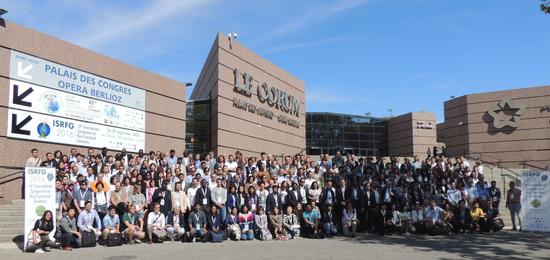Rice is the major cereal food crop which feed an increasing world population. The 7.3 billion mankind is expected to stabilize around more than 9 billion people by year 2050. The population growth will mainly occur in rice-eating countries.
The scientific community is therefore facing the challenge of providing the farmers with tools and resources that will enhance rice production while saving natural resources (water and fertilizers) in shrinking arable lands. Furthermore, this has to be achieved in a climate of increasing unstablility in which rice cultivation has to reduce its impact and participate to its mitigation. These questions have to be addressed through improved, environment-friendly and precise agricultural practices and new, enhanced and resilient varieties, both taking advantage of a functional diversity in the agro-ecosystems.
Recent breakthoughs in rice genomics have narrowed the gap between genetic variation and the phenotype and performance and allowed the deciphering of the function of important genes underlying agronomically relevant traits. These discoveries are being readily integrated into breeding programmes worldwide.
From September 26-29th 2016, to review these advances, the rice scientific community of Montpellier Languedoc Roussillon will host scientists from around the world at the 14th International Symposium on Rice Functional Genomics (ISRFG). Our community hosted a first successful symposium 10 years ago, in October 2006 at the Montpellier Corum, gathering around 300 scientists.
The 2016 symposium will cover recent, exciting breakthroughs in structural, functional and evolutionary rice genome biology - pushing current scientific knowledge to address the need of sustainably increasing crop yields and global food security.
Please join us for an exciting meeting to discuss cutting-edge science with many of the world's top scientists. Meet old friends, make new ones, and forge novel collaborations in the beautiful setting and hospitality of Montpellier historical city and the Languedoc Roussillon region, nearby the French rice growing Camargue land.
Together, we can make new discoveries in rice biology and breeding to improve the world for our and future generations.


